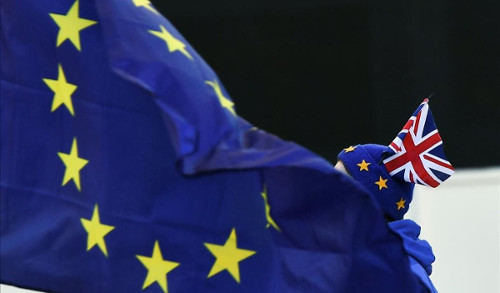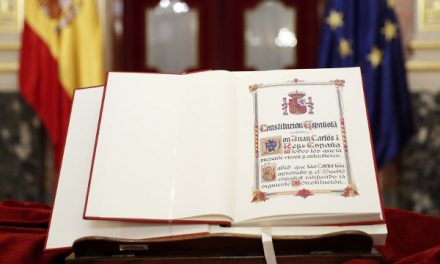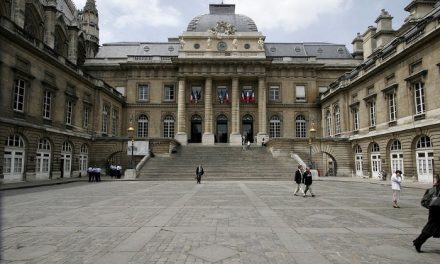 Félix de la Fuente, renowned jurist and regular contributor to the Royal European Academy of Doctors-Barcelona 1914 (RAED), reflects on the consequences for the millions of citizens, British and non-British, of the imminent departure of the United Kingdom from the European Union in the article “El Brexit, la triple traición” (Brexit, the triple betrayal). He is the author of the “Glosario Jurídico de la Unión Europea” (Legal Glossary of the European Union) and the “Dictionnaire juridique de l’Union Européenne” (Legal dictionary of the European Union), two reference works of Community Law. De la Fuente believes that a political decision cannot simply remove European citizenship to those who have voted in favour of staying in the European Union. “Although this isn’t clear in the letter of the Treaty of the European Union, it does respond to its spirit and its logic”, argues the author.
Félix de la Fuente, renowned jurist and regular contributor to the Royal European Academy of Doctors-Barcelona 1914 (RAED), reflects on the consequences for the millions of citizens, British and non-British, of the imminent departure of the United Kingdom from the European Union in the article “El Brexit, la triple traición” (Brexit, the triple betrayal). He is the author of the “Glosario Jurídico de la Unión Europea” (Legal Glossary of the European Union) and the “Dictionnaire juridique de l’Union Européenne” (Legal dictionary of the European Union), two reference works of Community Law. De la Fuente believes that a political decision cannot simply remove European citizenship to those who have voted in favour of staying in the European Union. “Although this isn’t clear in the letter of the Treaty of the European Union, it does respond to its spirit and its logic”, argues the author.
“Everybody admits that you cannot keep two people or two states eternally against their will, not even within the European Union, but here we aren’t facing a marriage or a divorce, Brexit is something much more serious. It isn’t just about two people or two States, we have many third parties that are negatively affected by the decisions made by others, nor is it an international agreement between two or several States, which can be abandoned at any time”.

Félix de la Fuente Pascual
The jurist argues that for more than half a century, since the drafting of the Treaties of the European Community, and later in the first Treaty of the European Union, the possibility of a member State leaving the Union wasn’t raised. “The possibility of abandoning this common project doesn’t fall within the logic of the European integration process: when a member State adheres to the European Union, it’s resolved to save a new stage in the process of European integration undertaken with the constitution of the European Communities and is convinced of the need to lay firm foundations for the construction of the European Union. This is what the preamble to the Treaty of the European Union tells us. Accession to the Union isn’t a marriage or a compromise between the acceding State and the other member States”, considers the author.
For De la Fuente, leaving the European Union “is to demolish a part of the European building that had been erected, that is to say to its own citizens and to the citizens of the other member countries that I’m no longer interested in the project, that I don’t want to continue with you in search of a lasting peace and well-being for Europe, that is to say publicly that you cannot trust me, because I don’t take commitments seriously. “The Brexit is, therefore, a treason of the British rulers to their own conscience and its own responsibility, is a betrayal of British citizens who want to remain united to the Union and is a betrayal of other citizens”.




